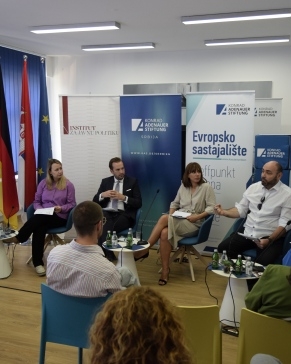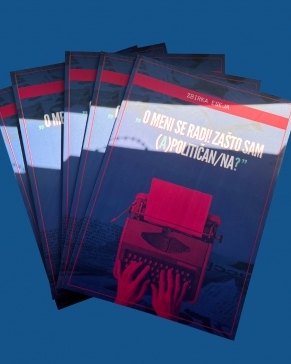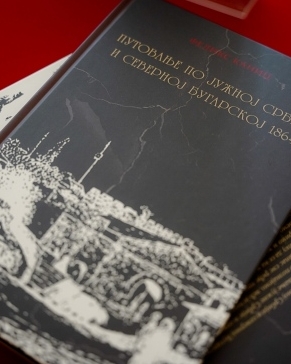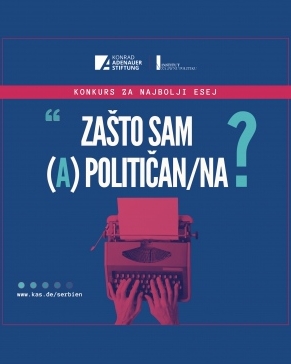
Eight years after gaining its independence from Serbia, and two decades after transition from post-conflict and post-authoritarian into EU integrations context, media landscape in Montenegro still reflects deep political divisions that the struggle for national and territorial independence created. Montenegro is a relatively small country with the population of 650.000. Nationally distributed six daily newspapers, rarely provide fair, balanced and reliable information to the consumers. Electronic media is mostly focused on entertainment and superficial coverage of events while internet based media lack trust of the public and professional standards in publishing of the content.
Print media is mostly divided across the line of pro-government against opposition or vice versa. State owned Pobjeda by majority of articles supports the government policies without critical distance to the covered issues, while oppositional media scene has more variables that shall be taken in to account. Two major issues are influencing oppositional media picture, the pro Serbian view, due to the large number of citizens of Montenegro that see themselves as Serbs therefore mostly seeing Serbia and Montenegro as part of the same nation and state mostly visible in the writings of the Dan newspapers and anti-government media that provide political support to opposition parties through the discourse and value context they use, such as Vijesti. Serbian daily Blic and new tabloid Informer are both representing different but at this stage non transparent interests while Dnevne novine try to remain neutral in such battle but as consequence not having the influence as some of the above mentioned.
However it is safe to say that all of the mentioned media are guided by political objectives and ideology rather than informative agenda as priority in their coverage of the news and stories in socio-political life of Montenegro. The links to political parties could be tracked by analyzing the main topics, actors (state or non-state), issues and agendas that print media put up in the main daily focus. The phenomenon that dominates this sphere of public arena also known as political and business parallelism, reflects in the “headlines journalism” style. In Montenegro press headlines are often designed around strong words, “exclusives”, personal accusations, and discoveries that have very little to do with the content of the article that follow the headline, while facts in articles are more or less blunt, misinterpreted, or even non existing. The reason for this presumably lies in the political/financial/personal motives of the owners of daily papers. Personal battles via front pages reflect the political debate, where a reader is in the position to gain knowledge and information solely based on the ideology of those that influence the article (owners, editors and interest groups that are in the core of that media circle). From the perspective of media policy formation, where journalists are supposed to be a strong, trustworthy link between the government and the general public, the society actor that informs, educates and gives voice to the marginalized segments of society neglected by the mainstream politics, Montenegrin media have failed to achieve this crucial purpose of their existence.
Another specific feature of Montenegrin media landscape, which is again directly linked to the political and business parallelism of two or more opposite fronts, lies in the fact that ‘political allies’ of media owners are also to be found among government institutions, international organizations, embassies, and judiciary. As a consequence of these politically motivated and often private interest based relationships, as well as disregard for the respect of moral and ethical standards in journalistic reporting, journalists and Editors in Chief tend to provide final verdict in all cases without providing the readers with the choice of information relevant for the public judgment over the reported issue. When mainstreamed, such practice leads to disregard of the fundamental ethical principles that violate basic human rights of those that are targets of such reports.
DG Enlargement Draft Guidelines for EU support to media freedom and media integrity in enlargement countries, 2014-2020 states: “It is essential that the enlargement countries guarantee open and pluralistic media landscapes which allow for a culture of critical and independent journalism. Without the presence of a fully free media, citizens in the enlargement countries are denied the right to balanced, factual and reliable information without exposure to bias and propaganda.”However, the problem in Montenegro is that investigative or critical journalism is very often in service of the political, private, financial interests or described ideologies. Investigative articles are highly influenced by the “intelligence sources” that have their roots in official politics or war time criminal networks. As a consequence, Montenegrin media infrastructure is rather a tool for defamation or attack on “enemies” than a tool for free and fair discussion over the key policy issues in the society. Responses to these issues may be many, however at this specific time we live in, there are no significant intentions, initiatives or even thinking by any of the stakeholders to change the reached status quo.
This article was published on the website fairpres.eu. This news portal has been produced with the assistance of the European Union.




